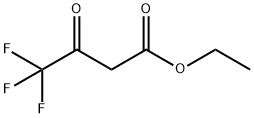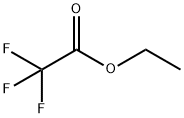Trimethylsilyl Isocyanate
Synonym(s):Isocyanatotrimethylsilane
- CAS NO.:1118-02-1
- Empirical Formula: C4H9NOSi
- Molecular Weight: 115.21
- MDL number: MFCD00001993
- EINECS: 214-256-8
- SAFETY DATA SHEET (SDS)
- Update Date: 2025-02-23 21:28:46

What is Trimethylsilyl Isocyanate?
Chemical properties
Clear colorless liquid
The Uses of Trimethylsilyl Isocyanate
Trimethylsilyl isocyanate is used in the preparation of 1-unsubstituted 4-(dialkylamino) imidazolin-2-ones. It finds application in the carbamoylation of aromatic hydrocarbons and alcohols. It is also used in the preparation of primary amides from Grignard reagents. Further, it is used in the synthesis of cyclic imides. It is also utilized for the synthesis of trifluoroacetyl isocyanate and cyclic imides. In addition to this, it is employed in the conversion of isocyanates to carbodiimides using cyclopentadienyl Mn(CO)3 catalysis.
Purification Methods
Purify it by repeated fractionation as for the isothiocyanate. [Eaborn J Chem Soc 3077 1950, Beilstein 4 III 1861, 4 IV 4011.]
Properties of Trimethylsilyl Isocyanate
| Melting point: | -49°C |
| Boiling point: | 90-92 °C(lit.) |
| Density | 0.851 g/mL at 25 °C(lit.) |
| refractive index | n |
| Flash point: | -2 °C |
| storage temp. | 2-8°C |
| solubility | Miscible with ethers and o-dichlorobenzene. |
| form | clear liquid |
| color | Colorless to Almost colorless |
| Specific Gravity | 0.867 |
| Hydrolytic Sensitivity | 8: reacts rapidly with moisture, water, protic solvents |
| Sensitive | Moisture Sensitive |
| BRN | 1744962 |
| CAS DataBase Reference | 1118-02-1(CAS DataBase Reference) |
| EPA Substance Registry System | Isocyanatotrimethylsilane (1118-02-1) |
Safety information for Trimethylsilyl Isocyanate
| Signal word | Danger |
| Pictogram(s) |
 Flame Flammables GHS02  Skull and Crossbones Acute Toxicity GHS06  Health Hazard GHS08 |
| GHS Hazard Statements |
H225:Flammable liquids H317:Sensitisation, Skin H319:Serious eye damage/eye irritation H331:Acute toxicity,inhalation H334:Sensitisation, respiratory H335:Specific target organ toxicity, single exposure;Respiratory tract irritation |
| Precautionary Statement Codes |
P210:Keep away from heat/sparks/open flames/hot surfaces. — No smoking. P233:Keep container tightly closed. P280:Wear protective gloves/protective clothing/eye protection/face protection. P303+P361+P353:IF ON SKIN (or hair): Remove/Take off Immediately all contaminated clothing. Rinse SKIN with water/shower. P305+P351+P338:IF IN EYES: Rinse cautiously with water for several minutes. Remove contact lenses, if present and easy to do. Continuerinsing. |
Computed Descriptors for Trimethylsilyl Isocyanate
New Products
1-Boc-4-cyanopiperidine tert-Butyl carbazate 1-(TERT-BUTOXYCARBONYL)-2-PYRROLIDINONE TETRABUTYLAMMONIUM CYANIDE TETRAHYDRO-2H-PYRAN-3-OL 3-Pyridineacrylic acid Nickel(II) perchlorate hexahydrate, 98% 4-Bromophenylacetonitrile, 95% 3-Bromo-4-fluoroaniline, 97% Sodium tetraborate decahydrate, 98% Palladium(II) acetate, trimer, Pd 99% 4-Bromo-2-chlorotoluene, 97% Tadalafil Clopidogrel bisulfate Sitagliptin Phosphate Monohydrate Cabergoline Fexofinadine HCl Etoricoxib 4-Amino Acetophenone 2-Chloro Acetophenone Amlodipine Base 2,3,5-Triiodobenzoic Acid Pyrrolidine Diiodo PentoxideRelated products of tetrahydrofuran







You may like
-
 Trimethylsilyl Isocyanate CAS 1118-02-1View Details
Trimethylsilyl Isocyanate CAS 1118-02-1View Details
1118-02-1 -
 (Trimethylsilyl)isocyanate CAS 1118-02-1View Details
(Trimethylsilyl)isocyanate CAS 1118-02-1View Details
1118-02-1 -
 366789-02-8 Riveroxaban 98%View Details
366789-02-8 Riveroxaban 98%View Details
366789-02-8 -
 Carvedilol 98%View Details
Carvedilol 98%View Details
72956-09-3 -
 Abiretorone 154229-18-2 98%View Details
Abiretorone 154229-18-2 98%View Details
154229-18-2 -
 73590-58-6 Omeprazole 98%View Details
73590-58-6 Omeprazole 98%View Details
73590-58-6 -
 201530-41-8 Deferasirox 98%View Details
201530-41-8 Deferasirox 98%View Details
201530-41-8 -
 Sertraline HCl 98%View Details
Sertraline HCl 98%View Details
79559-97-0
Statement: All products displayed on this website are only used for non medical purposes such as industrial applications or scientific research, and cannot be used for clinical diagnosis or treatment of humans or animals. They are not medicinal or edible.
